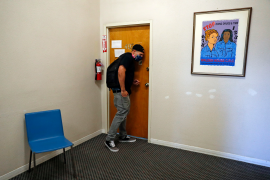By Alex Wayne and Joseph J. Schatz, CQ Staff
July 10, 2009 -- House Democratic leaders now plan to release a finished version of their health overhaul on Monday and say they have reduced the measure's cost to less than $1 trillion over 10 years.
Members of the Ways and Means Committee said Friday that the bill would be paid for chiefly by a combination of spending reductions in Medicare—$500 billion to $600 billion worth, over 10 years—and a new income surtax on wealthy Americans that would produce $540 billion over the same period.
The surtax would be levied beginning in 2011, said Ways and Means Chairman Charles B. Rangel, D-N.Y., and the rate would be graduated. He said there would be three income brackets for the surtax—$350,000, $500,000 and $1 million—with a different rate at each level. "One, two, three [percent], something like that," Rangel said.
The tax-writing committee, in a long meeting on Friday, rejected a number of other proposals to pay for the measure, including a tax on sugared beverages or applying Medicare’s payroll tax to capital gains—an idea under consideration in the Senate. Proposals other than a surtax on the wealthy lacked sufficient political support among Democrats.
"I think that may be the only way we can do it," said Lynn Woolsey, D-Calif., co-chairwoman of the Progressive Caucus.
The Ways and Means Committee is under strong pressure from the White House, House Democratic leaders and the moderate Blue Dog Coalition to wring as much savings from Medicare as possible. Earlier in the week, the committee had settled on changes to Medicare that would have saved just $152 billion over 10 years, according to a Congressional Budget Office analysis. Committee members declined to detail how they now plan to nearly quadruple that figure.
"We’re still working on the savings side," said Chris Van Hollen, D-Md. Democratic Caucus Chairman John B. Larson, D-Conn., said aides would continue working over the weekend to produce the added spending reductions.
All About Cost
The cost of the overhaul has become the paramount issue in the debate, eclipsing even the ongoing arguments over a proposed government-run insurance plan that Democrats want to create to cover some of the 47 million Americans believed to lack insurance. While a surtax on the wealthy may be the most politically palatable way for House Democratic leaders to pay for the overhaul, it is sure to cost them votes among some members of their caucus.
"I have a concern with going outside the health care system" to pay for the bill, said Jason Altmire, D-Pa., a Blue Dog.
The Blue Dogs met with Democratic leaders for more than two hours Thursday night after publicly issuing a letter saying they would oppose the House bill without significant changes. The caucus has warned for months that the bill was leaning too far left, politically, and the Blue Dogs said they felt party leaders had ignored their entreaties to modify the measure.
"I feel like the House has moved this issue so far to the left we’ve taken ourselves out of the discussion entirely," Altmire said. A bill under development by the Senate Finance Committee, he said, seems to be perceived as more likely to become law.
But efforts by Chairman Max Baucus, D-Mont., to draft a bill that at least a smattering of Republicans would agree to support have failed to bear fruit thus far, and no formal Finance Committee markup has been scheduled.
The Senate Health, Education, Labor and Pensions Committee plans to resume markups at 2 p.m. Monday on its health bill, which has drawn only Democratic support within the committee. That draft includes both the public plan option opposed by Republicans and a mandate on employers to provide health insurance to their workers —another provision broadly opposed by the GOP.
Rangel said his committee had spent time Friday discussing the Blue Dogs' concerns, but did not detail any changes to the bill that might satisfy the moderates.


